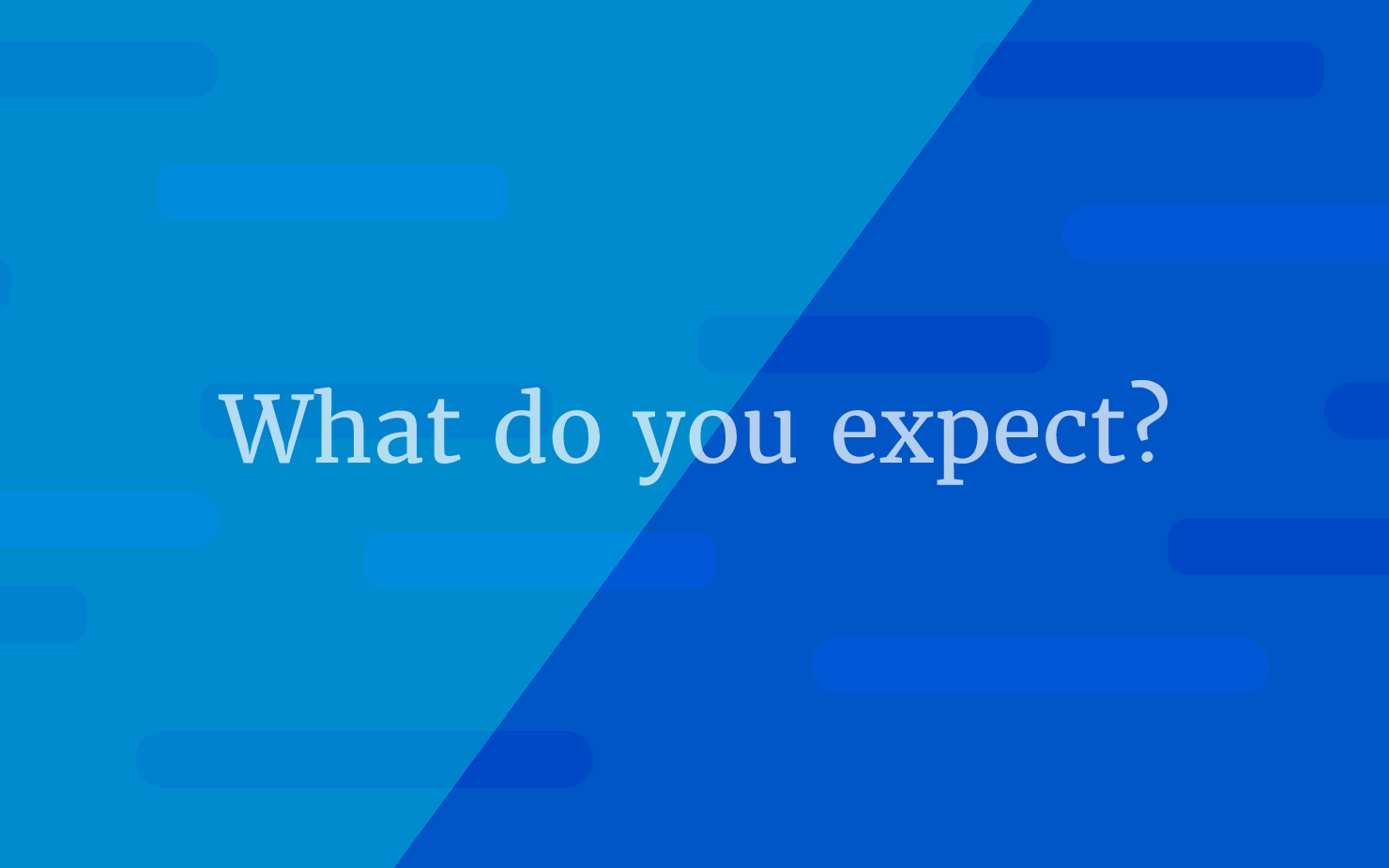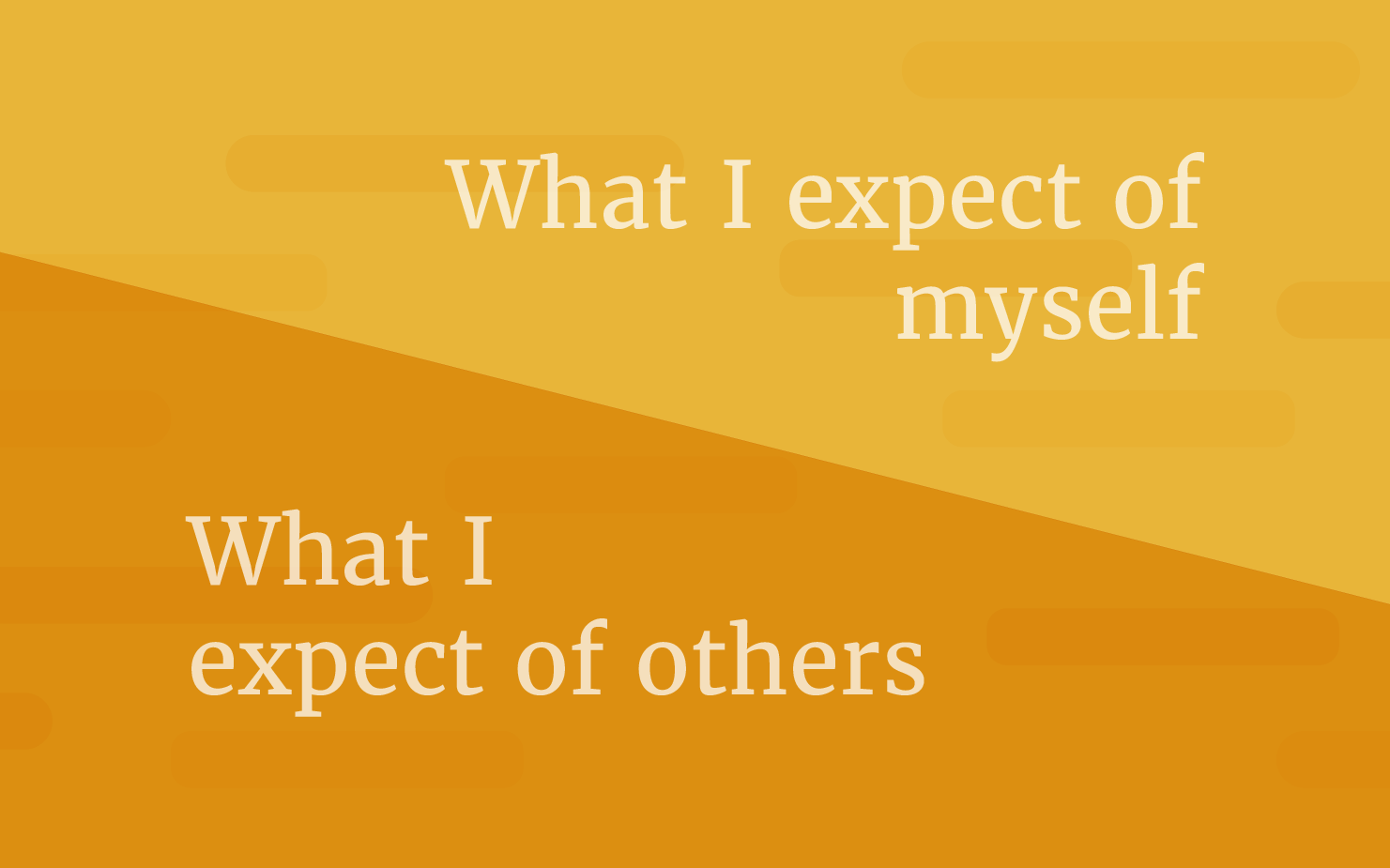
What do you expect?
If there is one thing that will change the way you relate to others AND which will increase your personal effectiveness, it is learning to identify expectations.
hoozyu is built on the life work of Dr Roger Birkman. Dr Birkman’s great contribution to the field of human behaviour was the recognition that there are two sets of expectations running in our heads at any one time:
- What I expect of myself
- What I expect of everyone else
If you are thinking that “for ‘normal’ people, surely those two sets of expectations should be the same,” you would be wrong. Most people have different expectations of themselves than what they expect of others. That doesn’t make them inconsistent, hypocritical, or any other negative tag you would like to apply. It just means they are normal.

The thing is, what you expect of yourself and what you expect of others, come from fundamentally different places. Your expectations of yourself are the result of the long process of socialisation which begins at birth, is pretty well developed in our teens and which finally settles down for most of us around our mid twenties. You will find this in your hoozyu under Usual.
Your expectations of others are much more fundamental. No one has yet been able to say exactly where this comes from - genes or early life experience or some combination of the two - but it is clearly established and stable by the time you are about three years old. It is really your view of how the world is meant to work, and distinct from how you think you are meant to work. You can find it in your hoozyu under Need.
So why do I say that learning to identify expectations will change your relationships and increase your effectiveness?
Firstly, because when you understand this, you will realise that there aren’t right and wrong ways of seeing things, but different viewpoints. Is it better to be process oriented, or situational and responsive? Both are perfectly valid, either may be more appropriate in a given situation, but both are ultimately required in every organisation and on every project.
Secondly, you probably hold these apparent contradictions in tension within your own person. There is almost certainly some area (maybe many) in which you expect one thing of yourself, and something different of everyone else. “I am direct and to the point, but I expect everyone else to be somewhat more sensitive.” You just validated the idea that both options are credible, since you appreciate the one in yourself and the other in other people.
Thirdly, when you realise that what you project in your behaviour (Usual) is not always the same as how you think the world should work (Need), you can begin to realise that everyone else may be just like you - what they project is not necessarily what they need or expect from others - including you.
One of the simplest ways of putting this insight into operation, is to realise that questions need to be asked, whenever any group of people are looking at a problem. Otherwise we will start assuming - assuming we all see the same problem, assuming we need the same things, assuming that what a person says is the whole story as to what they are expecting. Don’t assume: learn to ask. Otherwise, the result is all too often complete chaos.
I mean: what do you expect?
If you want to study this in more depth, get hold of the hoozyu book
